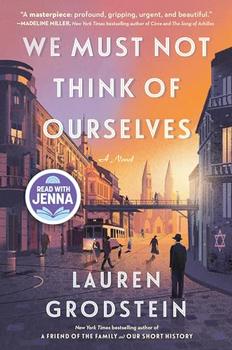Midway through the novel, Adam encounters a fellow Oneg Shabbat archivist who tells him the ghetto has exposed the rot of Warsaw's Jewish citizens. What do you make of his speech, and of Adam's reaction to it? (Chapter 12, pages 132-136)

 Midway through the novel, Adam ...
Midway through the novel, Adam ...
Created: 01/01/24
Replies: 7
Join Date: 10/15/10
Posts: 3442
Midway through the novel, Adam encounters a fellow Oneg Shabbat archivist who tells him the ghetto has exposed the rot of Warsaw's Jewish citizens. What do you make of his speech, and of Adam's reaction to it? (Chapter 12, pages 132-136)
Join Date: 02/09/23
Posts: 89
Forman seems to be criticizing Jews for allowing themselves to be victims (and then almost celebrating their victimhood in the memorializing of it) - rather than fighting back - even to their death (which is apparently imminent anyway). He also criticizes their hypocrisy in hoarding food while fellow Jews (and children) starve (which he freely admits he does as well).
While Adam is repulsed by this rant, he acknowledges that Forman has a point and that while Jews "might not be better than anyone else, given these circumstances, they certainly weren't any worse."
I think this gets back to the argument of what is the "right" thing to do in terrible circumstances beyond your control? Must you sacrifice yourself - and your family to possibly save others? Do you just do the best you can to survive - even if it means saving yourself - and your family - at the expense of others? And who is "righteous?" Are the "victims" in the ghetto who don't fight back better than the Polish citizen who also doesn't rise against the Nazis in their support?
What is the moral difference between the Polish citizen who does nothing to oppose the Nazis and is thankful to be left alone and the Jew who hoards food in the ghetto and steps over starving children?
These are hard questions with no easy answers.
It is interesting that the title "We must not think of ourselves" is mentioned once during the aftermath of Kasia's death where Adam discusses rituals of grief and says "We must not be comfortable. We must not think of ourselves." Adam says this remembering his father's funeral and contrasting it with Kasia's where her father made it all about himself and his grief - another reference to Forman's point?
Join Date: 08/12/15
Posts: 167
This is an interesting question. I think with any ethicity there are no absolutes. Being a Jew doesn't make you any better than being Irish or French. We are , after all human beings with a storng sense of self-preservation. It must not be as hard to let "someone "else's child starve and not our own child. Moral questions like this are very cloudy in situations like this ,in war, in natural disasters. I think people are people and everyone wants to live!
Join Date: 04/26/17
Posts: 258
Join Date: 02/21/19
Posts: 44
Ignatz Forman is a member of Oneg Shabbot but very cynical about about its mission. He calls Ringelblum a fool for thinking the history of the Warsaw Ghetto will be of interest to anyone because"nobody cares about what the Jews have to say and never will." I think his cynicism is misfortunate and misplaced. Contrary to his feeling that the work of Oneg Shabbot will be disregarded by future generations due to anti-Semitism, the work survives and has given succeeding generations the true account of the atrocities perpetrated by the Nazis. Without this archive, the only record we would have of the the Warsaw Ghetto is what the Nazi Regime chose to describe in their records.
Forman describes the Oneg Shabbat project as a "memorial to a hollow people...who prefer to think of themselves as mere victims instead of moral actors like everyone else." He then tells Adam that the Jews are allowing this to happen, i.e. "by letting other Jews die of starvation in the street." Adam has no response to this but on the way home, he mulls over the many moral dilemmas facing the Jews in the ghetto, He comes to the conslusion that while Forman may have had a point, given the circumstances, the Jews weren't any worse than anyone else.
Join Date: 06/12/22
Posts: 64
Forman was a representative character included in the book by the author in order to present unpopular views and make readers consider them, I believe. He was cynical, bitter, and lashed out because he could not escape his circumstances. He was responding to being trapped. While some people react in the way Forman did, others see hope. It was an excellent way for the author to shine a light on the two different ways of looking at the world, the situation, and the path to survival, in my estimation.
Join Date: 08/12/15
Posts: 167
Join Date: 02/09/23
Posts: 89
Szifra also expresses a different view: "And while I'm at it, I might as well tell you that I object to the idea that every Jew is a good person. That's simply untrue. Just because we are the so-called victims here doesn't mean we all have the individual moral high ground. It's true that we are in a lousy position through little to no fault of our own, but that fact doesn't necessarily make us all good people. What I mean is that you can also be a bad person in a bad position. I refuse to see every Jew as some sort of angelic martyr."
I think throughout the novel, the author raises hard questions. What is the "right" thing to do? What is moral? Who is moral or righteous? When we judge, to whom do we give the benefit of the doubt - or a pass - and from whom do we demand some higher expectation of bravery and sacrifice?
Reply
Please login to post a response.